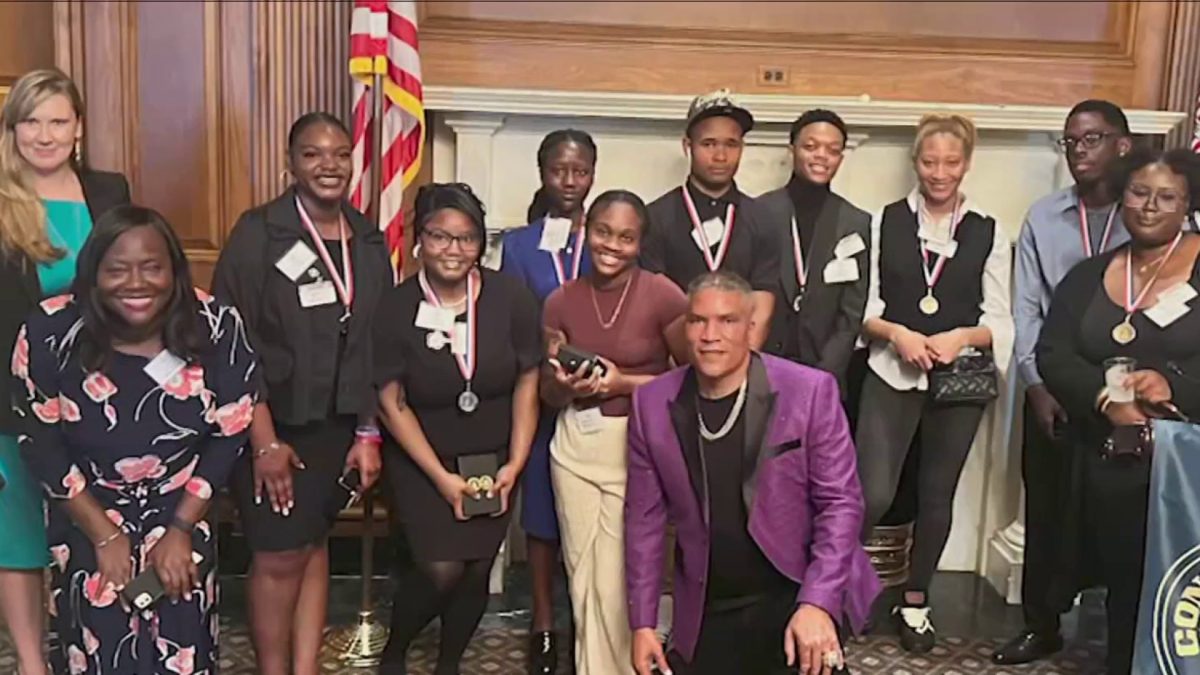You might think a Supreme Court decision about campaign finance laws in Montana would have no impact on local elections in the District of Columbia, but that may not be the case.
Yesterday, the justices overturned a Montana law that had banned corporate support of independent campaign expenditures. In short, the court upheld its landmark decision, Citizens United, which opened the door for corporations and unions to spend unlimited amounts of money to influence the outcome of elections through independent expenditure committees.
Meanwhile, District activists are in the final weeks of a petition drive that, if successful, would let voters decide whether or not corporations should be allowed to continue the practice of making campaign contributions directly to candidates.
In order to qualify for the November ballot, supporters of the measure -- dubbed Initiative 70 -- must collect 23,000 signatures before July 9th. A few weeks ago a campaign organizer told me they needed at least 10,000 more endorsers.
I signed the Initiative 70 petition because voters are the people who participate in and decide elections; so why not let us vote on the rules?
Sadly, Initiative 70 was flawed from its outset and is now doomed from achieving its intended effect.
First, why Initiative 70 is flawed: it seeks to ban corporations from making contributions to candidates. It does not ban unions from making contributions. Singling out the business community while ignoring the influence of unions and their deep pocket campaign funds is explicitly partisan.
Local
Washington, D.C., Maryland and Virginia local news, events and information
If the idea of Initiative 70 is to put power back in the hands of people, then all collective efforts that bundle money or otherwise benefit from cash streams not connected to an individual should be banned.
Second, and most important, Initiative 70 cannot prevent corporations (or unions) from funding PACs or Super PACs.
As such, all Initiative 70 would achieve is to reroute the flow of money into local politics.
Take, for example, this scenario: An incumbent D.C. councilmember who has benefited from hefty corporate contributions in previous election cycles finds himself up for reelection. If Initiative 70 is the law of the land, that councilmember would be prohibited for accepting corporate contributions. But that councilmember has depended on money from the business community in the past. He is never going to risk campaigning on a level playing field on which he could lose. No way.
Rest assured, trusted surrogates of that councilmember will form a PAC or Super PAC into which the big bucks will flow.
Worse, no longer will that councilmember be accountable for how the money is spent. He will be able to disavow any connection to attack ads or unseemly campaign tactics.
Furthermore, corporations will no longer be held to campaign finance limits. Those that previously cobbled together multiple $500 or $1,000 checks from various entities will now be in a position to write one jumbo check.
Initiative 70 activists will tell you that Citizens United freed fat cats to spend big regardless of their proposed law. True. But in an environment without Initiative 70, there is little incentive for elected officials to relinquish control of their access to corporate bucks. Politicians prefer to manage their own campaign spending. However, if you tell them they cannot, well then, fine. They will outsource the real spending and gleefully watch an overwhelming show of force on their behalf.
Initiative 70 intended to limit corporate influence in politics, stymie the pay-to-play mentality and create an environment where challengers can compete with incumbents.
A noble cause, but challengers can all but forget it if Initiative 70 succeeds.
Keep your day job, would-be reformer. Incumbents now have the cover they need to outsource the nefarious side of politics to allies. And the Supreme Court has green-lighted SuperPACs and their ilk for the foreseeable future.
A better solution is publicly financed campaigns. Though it would not prevent corporations from opening their wallets, funding candidates equally with public dollars would at least allow challengers to focus less on raising money and more on competing with incumbents over ideas.
Chuck Thies is a political analyst and consultant. His columns appear every Tuesday and Thursday on First Read DMV. He co-hosts "DC Politics" on WPFW, 89.3 FM. Since 1991, Chuck has lived in either D.C., Maryland or Virginia. Email your tips and complaints to chuckthies@gmail.com or tweet at @chuckthies.



